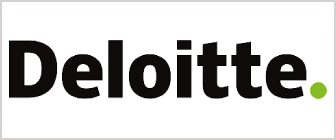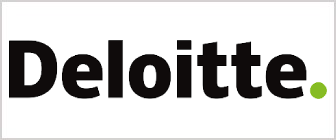Why did you choose to pursue a career in tax? Was there an ‘aha’ moment? If so, please describe.
After earning my undergraduate degree in Accounting, I worked at a small CPA firm and then went to law school to focus on tax law. During an internship with Deloitte, I had a great experience and received diverse, challenging work assignments. Perhaps more importantly, the culture and connectivity with the people I worked with led me to know, at that early stage of my career, that I could see myself at Deloitte for a long time. The relationships I developed during my internship remain strong to this day.
From your career, is there a particular assignment that was a turning point or watershed moment for you? What did you learn or take away from it?
What stands out for me is an opportunity I had to take over a project that evolved into a complex, multi-country engagement that ultimately became one of the largest restatements ever by a US public company. I managed a large global team and worked in lockstep with the client during a pivotal moment for them. It challenged me technically, and it was the first time I led a large team in this capacity. The engagement allowed me to grow my leadership skills, and it affected the work I did from then on. I don’t think I would be where I am today without that experience.
What do you consider to be the greatest achievements of your career to date?
What I’ve found to be the most fulfilling has been helping other tax professionals advance in their careers, helping to ensure they have the same opportunities I had through mentorship, sponsorship, and working with them in an apprenticeship model.
Tax work in the pandemic era
What kind of challenges did you face adapting to the workplace amid the pandemic?
My story probably resembles many others who have had to adapt to this new way of working. Overnight, I went from working in New York City, traveling frequently, to working from home alongside my husband and three teenagers who were at home attending high school and college virtually. It was quite a challenge to continue to serve my clients and lead my practice through one of the greatest global crises we have ever faced while also trying to help my family adapt to this new way of living. While it was certainly challenging, I believe we have all learned great lessons of flexibility, resilience, and adaptability and that has been one of the silver linings of the pandemic.
Were there any initiatives that helped your clients deal with the repercussions of the Covid-19 pandemic?
In the early days of the pandemic, we were very focused on listening and helping clients with their immediate needs. Deloitte took a human-centered approach to helping clients across our firm—in every industry—deal with COVID. We identified three phases that resilient leaders would face amid COVID. 1) Respond: How an organization deals with the present situation and manages continually, 2) Recover: How an organization learns and emerges stronger, 3) Thrive: How an organization prepares for and shapes the "new normal". From resources to technology support or process improvements to make remote work run smoothly, all that we did was centered around helping them at each phase, so that they could recover and thrive as we move forward. We saw many companies who were at an early stage of digitizing or handing off part of their tax functions to a third party really accelerate those plans because of the pandemic.
What is the most significant change to your region/jurisdiction’s tax legislation or regulations in the past 12 months? What do you see on the horizon?
One of the more significant trends in the past 12 months has been the proposed expansion of information reporting requirements both in the US and globally. The pace of global information reporting has had a big impact, as many jurisdictions adopt new rules and digital filing requirements. We’re of course also keeping a close eye on potential tax law changes coming from Washington - the Biden administration has proposed an ambitious tax agenda that will potentially impact a wide variety of taxpayers from the largest of multinational corporations to pass through entities and their owners to individuals and trusts. Finally, we’re also watching the OECD’s global tax rewrite, changes in transfer pricing and emerging state and local trends. Tax is changing at a rapid pace, so we are always working to stay ahead of the curve so we can guide our clients through uncertainty, uncover insights and provide strategic value to their organizations.
A career in tax
What key piece of advice would you give to young tax professionals just starting an entry-level job? Is there something you wish you knew when you were first starting out?
Don’t underestimate the value and importance of relationships. There’s a tendency to focus on technical skills early in your career, but building relationships is just as crucial. With so many young professionals starting today in a virtual environment, it’s important for all of us to think about how we connect with our teams, build relationships, and instill our culture.
What does your firm do to nurture and promote talent? Do you think it compares well to others in your market in this area?
We are committed to delivering a best-in-class talent experience for our people—including developing the tax professionals of the future through agile learning and technologies. I’d say we have some of the best programs in the industry to help build tax technical expertise, business understanding, business judgement and leadership skills. Our culture is built on the varying opinions, backgrounds, and experiences that our tax professionals bring to the table. We continuously challenge our own thinking on talent and what our younger talent needs. It’s really important to understand and meet talent where they sit rather than where we sit and put ourselves in their shoes. We know that we are stronger as a firm, deliver greater value to our clients, and are more impactful in our communities when all of our people feel comfortable bringing their authentic selves to work, and when they are empowered to bring their diverse perspectives, experiences, and ideas to the table. With leadership commitment and an innovative mindset, we are continuing to set the standard for other organizations.
What does the tax function of the future look like?
Over the next five years, we will continue to see significant technological advancement that will impact the future of tax. The tax professional of the future will have learned the profession differently than my generation, mainly because technology plays a much bigger role. Embracing digital technologies will be a key opportunity for organizations going forward, helping them increase efficiencies, lower costs, and have access to real-time data. Professionals in the future are likely to be more creative problem solvers who focus on complex, larger problems and take our ability to be advisors to the next level. Professionals who can adapt and embrace new technologies and innovative methods quickly will be well-positioned for success. That said, the “tax office of tomorrow” will look different for each organization – there isn’t a one-size fits all model. At Deloitte, we are helping our clients explore a broad-based range of tax operating model solutions to address their specific needs.
This document has been prepared solely for the purpose of publishing in the 2022 Women in Tax Leaders guide (Americas edition) and may not be used for any other purpose. This document and its contents may not be reproduced, redistributed or passed on, directly or indirectly, to any other person in whole or in part without Deloitte’s prior written consent.
Deloitte refers to one or more of Deloitte Touche Tohmatsu Limited (“DTTL”), its global network of member firms, and their related entities (collectively, the “Deloitte organization”).
DTTL (also referred to as “Deloitte Global”) and each of its member firms and related entities are legally separate and independent entities, which cannot obligate or bind each other in respect of third parties. DTTL and each DTTL member firm and related entity is liable only for its own acts and omissions, and not those of each other. DTTL does not provide services to clients. Please see www.deloitte.com/about to learn more.
Deloitte is a leading global provider of audit and assurance, consulting, financial advisory, risk advisory, tax and related services. Our global network of member firms and related entities in more than 150 countries and territories (collectively, the “Deloitte organization”) serves four out of five Fortune Global 500® companies. Learn how Deloitte’s approximately 330,000 people make an impact that matters at www.deloitte.com.
This communication contains general information only, and none of Deloitte Touche Tohmatsu Limited (“DTTL”), its global network of member firms or their related entities (collectively, the “Deloitte organization”) is, by means of this communication, rendering professional advice or services. Before making any decision or taking any action that may affect your finances or your business, you should consult a qualified professional adviser.
No representations, warranties or undertakings (express or implied) are given as to the accuracy or completeness of the information in this communication, and none of DTTL, its member firms, related entities, employees or agents shall be liable or responsible for any loss or damage whatsoever arising directly or indirectly in connection with any person relying on this communication. DTTL and each of its member firms, and their related entities, are legally separate and independent entities.
© 2021. For information, contact Deloitte Global.


